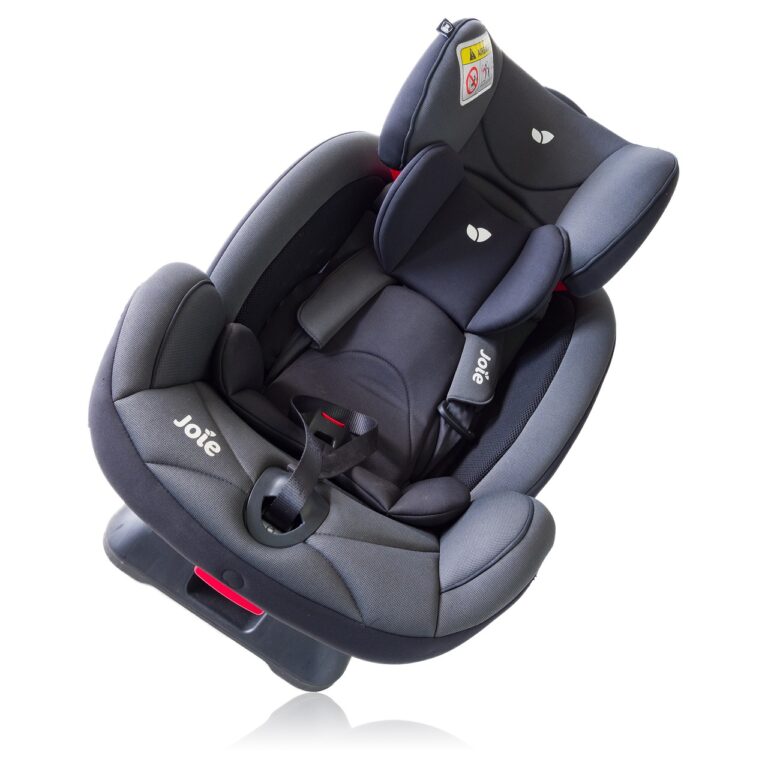How Much Prune Juice To Give Baby
Are you a new parent struggling to find a safe and effective remedy for your baby’s constipation? Look no further than prune juice! But just how much prune juice should you give your baby?
Prune juice has long been known for its natural laxative properties, making it a popular choice for relieving constipation in babies and young children. However, it’s important to understand the optimal dosage to ensure both effectiveness and safety.
- Consult with a pediatrician before introducing prune juice to your baby
- Babies over 1-year-old can be given prune juice in small amounts to relieve constipation
- Gradually introduce prune juice and watch for any allergic reactions or bloating
In this article, I will explore the optimal amount of prune juice to give your baby, the benefits and limitations of prune juice as a constipation remedy, and when and how to introduce prune juice to your little one.
Skip To The Following Sections
- Prune Juice for Babies: Benefits and Limitations
- When to Give Prune Juice to Baby
- Recommended Dose of Prune Juice for Infants
- How Much Prune Juice for Toddlers: Dosage and Precautions
- Other Treatment Options for Baby Constipation
- Causes of Constipation in Babies and Toddlers
- How to Identify Baby Constipation
- When to Seek Medical Attention for Baby Constipation
- Preventing Baby Constipation
- 1. Exclusive Breastfeeding and Water Intake
- 2. Addressing Formula Sensitivities
- 3. Introducing High-Fiber Foods
- 4. Establishing Regular Toilet Habits
- 5. Balanced Diet with Fruits, Vegetables, and Whole Grains
- 6. Limiting Dairy Product Intake
- 7. Promoting Sufficient Fluid Intake
- 8. Table: High-Fiber Foods for Preventing Constipation
- Prune Juice and Alternative Treatments for Constipation
- Conclusion
- FAQ
- How much prune juice should I give my baby?
- What are the benefits of prune juice for babies?
- When should I give prune juice to my baby?
- What is the recommended dose of prune juice for infants?
- How much prune juice can I give my toddler?
- Are there other treatment options for baby constipation?
- What are the causes of constipation in babies and toddlers?
- How can I identify constipation in my baby?
- When should I seek medical attention for my baby’s constipation?
- How can I prevent constipation in my baby?
- Are there any alternative treatments for baby constipation besides prune juice?
Key Takeaways:
- Prune juice is a safe and effective remedy for relieving constipation in babies
- Consult with a pediatrician before giving prune juice to your baby
- Introduce prune juice gradually and monitor for any adverse reactions
- Prune juice should be given in small amounts to babies over 1 year old
- Watch for signs of constipation and seek medical attention if necessary
Prune Juice for Babies: Benefits and Limitations
Prune juice is a popular choice for treating constipation in babies due to its ability to stimulate the digestive tract. The high sorbitol content in dried plums acts as a natural laxative and diuretic, helping to soften and loosen stools. Additionally, prune juice contains phenolic compounds that further enhance its laxative effect.
There are several benefits of prune juice for babies with constipation. Firstly, it provides a gentle and natural solution to relieve discomfort and promote regular bowel movements. Prune juice can be easily incorporated into the baby’s diet, either as a standalone drink or by diluting it with water for infants under 1 year old. It’s important to note that prune juice is generally safe for babies over 4 months old, but always consult with a pediatrician before introducing any new foods or drinks.
However, it’s important to understand that prune juice may not work for every baby and has its limitations as a constipation treatment. It’s essential to recognize that prune juice can cause allergies and gastrointestinal discomfort, including bloating and gas. Introducing prune juice gradually and in small doses can help minimize the risk of adverse reactions. Additionally, it’s crucial to continue breastfeeding or formula feeding alongside prune juice consumption to ensure the baby’s overall hydration and nutrition.
“Prune juice can be a great natural remedy for relieving constipation in babies, but it’s important to introduce it slowly and watch for any signs of allergies or discomfort.” – Dr. Sarah Turner, Pediatrician
Key Benefits of Prune Juice for Babies:
- Stimulates the digestive tract
- Acts as a natural laxative and diuretic
- Softens and loosens stools
- Gentle and natural solution for constipation
Limitations of Prune Juice as a Constipation Treatment:
- Possible allergies and gastrointestinal discomfort
- May not work for every baby
- Introduce gradually and in small doses
To ensure the safe and effective use of prune juice for your baby, consult with a healthcare professional for personalized advice and guidance.
When to Give Prune Juice to Baby
As a parent, it’s important to know when it’s appropriate to introduce prune juice to your baby. Prune juice can be given to babies who are over 1 year old and experiencing constipation. However, it is not recommended for infants younger than 1 year old, unless specifically advised by a pediatrician.
If your baby is showing signs of constipation such as straining, infrequent bowel movements, and pain, it’s essential to consult with a healthcare professional before introducing prune juice. They will be able to provide guidance on the appropriate timing and dosage of prune juice for your baby’s specific condition.
Remember, every baby is different, and their digestive systems develop at their own pace. It’s important to trust the advice of your pediatrician and proceed with caution when introducing new foods or remedies to your baby’s diet.
Recommended Dose of Prune Juice for Infants
When it comes to relieving constipation in infants between the ages of 2 and 12 months, prune juice can be a helpful remedy. However, it’s important to ensure that the prune juice is administered in the right dosage to avoid any potential issues.
The recommended dosage for prune juice is generally 1 ounce per month of life, with a maximum daily dose of 4 ounces. This means that a 2-month-old infant can be given 2 ounces of prune juice per day, while a 12-month-old can have up to 4 ounces. It’s crucial not to exceed the maximum daily dose to prevent any undesirable effects.
To ensure proper hydration, the prune juice can be diluted with water. This not only helps with hydration but also prevents any discomfort that may arise from consuming concentrated prune juice. Additionally, it’s important to continue with formula or breastfeeding alongside prune juice consumption to maintain a balanced diet and overall nutrition.
If your infant is not able to drink from a cup, you can use a syringe or spoon to administer the prune juice in small amounts. This ensures that the infant can easily consume the recommended dose without any difficulty.
| Age | Recommended Daily Dose of Prune Juice |
|---|---|
| 2 months | 2 ounces |
| 4 months | 4 ounces |
| 6 months | 6 ounces |
| 8 months | 8 ounces |
| 10 months | 10 ounces |
| 12 months | Up to 4 ounces |
Expert Insight:
Dr. Sarah Thompson, pediatrician, advises, “When introducing prune juice to infants, it’s crucial to follow the recommended dosage. Giving more than the suggested amount can lead to gastrointestinal discomfort and other digestive issues. Always consult with your pediatrician if you have any concerns or questions.”
Remember, while prune juice can be effective in relieving constipation, each infant may respond differently. It’s essential to monitor your baby’s reaction to prune juice and consult with your pediatrician if any issues arise. With the right dosage and proper guidance, prune juice can be a helpful remedy for constipation in infants.
How Much Prune Juice for Toddlers: Dosage and Precautions
Toddlers, who are children over 1 year old, commonly experience constipation, especially during toilet training. Prune juice can be given in larger doses to relieve constipation in toddlers, but it’s important to limit the intake to less than a cup per day to avoid stomach irritation. Prune juice should be introduced gradually and monitored for any adverse effects. It’s recommended to have prune juice on hand for treating constipation in infants and toddlers.
Prune juice can be found in grocery and health food stores, with pasteurized options being the best choice to ensure safety and eliminate harmful bacteria.
| Dosage | Age | Frequency |
|---|---|---|
| Less than 1/4 cup | 1-2 years old | Once a day |
| 1/4 to 1/2 cup | 2-3 years old | Once a day |
| 1/2 to 3/4 cup | 3-4 years old | Once a day |
| 3/4 to 1 cup | 4-5 years old | Once a day |
Remember to consult with a pediatrician before introducing prune juice to toddlers, especially if they have any underlying health conditions or allergies.
Other Treatment Options for Baby Constipation
Besides prune juice, there are other natural remedies that can help relieve baby constipation. Let’s explore some options:
- Warm bath: Give your newborn a warm bath to relax their muscles, which may help stimulate a bowel movement. This can be a soothing and effective method to relieve constipation.
- Offer water: For babies who are 6 months or older, offering water to drink can help hydrate their digestive tract and soften their stools.
- Massage the stomach: Gently massaging your baby’s stomach in a clockwise motion can help stimulate the digestive system and relieve constipation. You can also try holding their knees together and gently pushing their legs up to help release gas and facilitate bowel movements.
- Try different positions on the toilet: For toddlers who are toilet training, experimenting with different positions on the toilet can help ease constipation. Additionally, creating a relaxed environment with their favorite books or toys can help them feel more comfortable.
It’s important to address the underlying causes of constipation, such as dietary changes and toilet training issues. By incorporating these natural remedies into your baby’s routine, you can support their digestive health and provide relief from constipation.
Expert Tip:
“When using massage techniques, make sure to apply gentle pressure and be mindful of your baby’s comfort. If you have any concerns or if the constipation persists, always consult with your pediatrician for personalized advice and guidance.”
| Remedy | Description |
|---|---|
| Warm bath | A relaxing bath can help stimulate a bowel movement by relaxing the muscles. |
| Offer water | Drinking water can help hydrate the digestive tract and soften stools. |
| Massage the stomach | Gentle massage in a clockwise motion can stimulate the digestive system and relieve constipation. |
| Try different positions on the toilet | Experimenting with different positions on the toilet can ease constipation during toilet training. |
Causes of Constipation in Babies and Toddlers
Constipation in babies and toddlers can be caused by various factors. Some common causes include:
- Sensitivities to infant formula
- A high-dairy diet
- A low-fiber diet
- Inadequate water intake
Toilet training can also lead to constipation in some children. If your child experiences constipation frequently during potty training, it may be helpful to pause the training process and resume once the symptoms have subsided.
Establishing a balanced diet with sufficient fiber and water, and ensuring regular toilet habits, can help prevent constipation in babies and toddlers.
| Cause | Description |
|---|---|
| Sensitivities to infant formula | Some babies may have sensitivities to certain types of infant formula, which can lead to constipation. |
| A high-dairy diet | Consuming excessive amounts of dairy products can contribute to constipation in babies and toddlers. |
| A low-fiber diet | A diet that lacks sufficient fiber can result in difficulty passing stools. |
| Inadequate water intake | Not drinking enough fluids, especially water, can lead to dehydration and constipation. |
| Toilet training | The process of toilet training can cause constipation in some children, particularly if they hold back their bowel movements. |
“Understanding the causes of constipation in babies and toddlers is crucial for effective prevention and treatment. By addressing these underlying factors, parents can help promote healthy bowel movements and overall digestive health.”
How to Identify Baby Constipation
Recognizing the symptoms of constipation in babies is crucial for timely intervention. Here are some signs to look out for:
- Fear or avoidance of bowel movements: If your baby seems scared or refuses to have a bowel movement, it may be a sign of constipation.
- Pain or straining during bowel movements: If your baby shows signs of discomfort, cries, or strains excessively during bowel movements, constipation may be the cause.
- Passage of liquid or clay-like substance between bowel movements: If you notice the passage of liquid or clay-like stool between bowel movements, it could indicate constipation.
- Fewer than three bowel movements per week for non-breastfed babies: If your non-breastfed baby has fewer than three bowel movements in a week, it could be a sign of constipation.
- Large stools: If your baby’s stools are hard, dry, and difficult to pass, constipation may be the cause.
- Abdominal pain: Your baby may experience abdominal pain or discomfort due to constipation.
- Excessive crying along with hard stools: If your baby cries inconsolably and has hard stools, it could be a sign of constipation.
If you notice any of these symptoms persisting or worsening, it’s important to consult a pediatrician for further evaluation and guidance.
When to Seek Medical Attention for Baby Constipation
In most cases, constipation in babies can be effectively managed at home with proper dietary changes and home remedies. However, there are situations where medical attention is necessary.
If your baby’s constipation persists despite dietary changes, it is recommended to consult a pediatrician for further evaluation and guidance. A healthcare professional can provide expert advice tailored to your baby’s specific needs.
Here are a few indications that it may be time to seek medical attention:
- Constipation persists despite dietary changes
- Severe pain during bowel movements
- Blood in the stool
- Tears or fissures develop in the rectal area
- No bowel movement for five days
If your baby requires immediate medical attention and you are unable to reach a pediatrician, it is recommended to visit an urgent care center. They can provide timely assistance and ensure your baby receives the necessary care.
Quote:
“It’s important to trust your instincts as a parent. If you’re unsure or concerned about your baby’s constipation, don’t hesitate to reach out to a healthcare professional. They are there to help and support you in providing the best care for your baby’s well-being.” – Dr. Emily Thompson, Pediatrician
| When to Seek Medical Attention | When to Monitor at Home |
|---|---|
| Constipation persists despite dietary changes | Infrequent bowel movements |
| Severe pain during bowel movements | Mild discomfort during bowel movements |
| Blood in the stool | Temporary straining during bowel movements |
| Tears or fissures develop in the rectal area | Passage of firm stools |
| No bowel movement for five days | Normal appetite and behavior |
Preventing Baby Constipation
Preventing constipation in babies involves several strategies. It’s important to establish healthy habits and provide a well-rounded diet to promote smooth bowel movements. Here are some tips to help prevent constipation in babies:
1. Exclusive Breastfeeding and Water Intake
Exclusive breastfeeding is unlikely to cause constipation. However, it’s essential for breastfeeding mothers to stay hydrated by drinking an adequate amount of water. This ensures that breast milk provides the necessary hydration for the baby.
2. Addressing Formula Sensitivities
If you’re using infant formula, it’s important to address any sensitivities your baby may have to ensure proper digestion. Consult with your pediatrician to determine the best formula option for your baby’s needs.
3. Introducing High-Fiber Foods
When your baby is ready for solid foods, gradually introduce high-fiber options such as pureed fruits, vegetables, and whole grains. These foods help regulate bowel movements and prevent constipation.
4. Establishing Regular Toilet Habits
Encourage your baby to have regular toilet habits by establishing a routine. This helps train their digestive system and promotes healthy bowel movements.
5. Balanced Diet with Fruits, Vegetables, and Whole Grains
A balanced diet with a variety of fruits, vegetables, and whole grains provides essential nutrients and fiber that aid in digestion and prevent constipation. Include a mix of these foods in your baby’s meals to promote regular bowel movements.
6. Limiting Dairy Product Intake
Excessive consumption of dairy products can contribute to constipation in some babies. Monitor your baby’s dairy intake and consider reducing it if constipation becomes a problem. Consult with your pediatrician for guidance.
7. Promoting Sufficient Fluid Intake
Make sure your baby stays hydrated by offering sips of water throughout the day, especially during hot weather or if your baby is experiencing constipation. Adequate fluid intake helps soften stools and facilitates bowel movements.
8. Table: High-Fiber Foods for Preventing Constipation
| Food | Fiber Content (per 100g) |
|---|---|
| Apples | 2.4g |
| Pears | 3.1g |
| Prunes | 2g |
| Bananas | 2.6g |
| Sweet Potatoes | 3g |
| Oatmeal | 10.6g |
| Brown Rice | 3.5g |
| Whole Wheat Bread | 6.7g |
| Quinoa | 2.8g |
Remember, every baby is unique, and what works for one may not work for another. If your baby experiences ongoing constipation or discomfort, it’s important to consult with your pediatrician for personalized advice and guidance.
Prune Juice and Alternative Treatments for Constipation
When it comes to relieving constipation in infants and toddlers, prune juice is a popular go-to home remedy. However, there are also alternative treatments that can be considered. It’s important to explore different options and consult with a healthcare professional to determine the most suitable approach for your child’s needs.
While prune juice can be an effective treatment, there are other methods that can also help alleviate constipation. Here are a few alternative treatments to consider:
- Warm baths: Giving your baby a warm bath can help relax their muscles and potentially stimulate a bowel movement.
- Increased water intake: Offering water to babies who are 6 months or older can help hydrate their digestive tract and promote regular bowel movements.
- Massage techniques: Gently massaging your baby’s stomach in a clockwise motion or holding their knees together and gently pushing their legs up can help release gas and facilitate bowel movements.
- Proper toilet habits: For toddlers, trying different positions on the toilet and creating a relaxed environment with their favorite books can encourage regular bowel movements.
It’s important to note that each child may respond differently to these treatments, so it may require some trial and error to find what works best for your little one. Consulting with a healthcare professional can provide valuable guidance and help ensure the chosen treatment is safe and appropriate.
Remember, while prune juice is a popular remedy, it’s not the only option. By considering alternative treatments and working closely with your healthcare provider, you can find the best approach to relieve constipation and promote your baby’s digestive health.
Conclusion
In conclusion, prune juice can be a safe and effective home remedy for relieving constipation in babies and young children. However, it’s important to consult with a pediatrician before introducing prune juice, especially for infants under 1 year old. The recommended dosage of prune juice varies based on the child’s age, and it’s important to introduce prune juice gradually and monitor for any adverse reactions.
Alongside prune juice, other home remedies such as warm baths, increased water intake, and proper toilet habits can also help alleviate constipation. Preventing constipation through a balanced diet and regular toilet habits is key. If constipation persists or worsens, it’s important to seek medical attention and follow the guidance of a healthcare professional.
FAQ
How much prune juice should I give my baby?
The recommended dosage of prune juice for infants varies depending on their age. For babies between 2 and 12 months old, the general guideline is 1 ounce of prune juice per month of life, with a maximum daily dose of 4 ounces. It’s important to introduce prune juice gradually and monitor for any adverse reactions or bloating.
What are the benefits of prune juice for babies?
Prune juice is commonly used to relieve constipation in babies due to its natural laxative properties. It contains sorbitol, a substance with laxative and diuretic effects, which can help stimulate the digestive tract. The phenolic compounds in prune juice also act as effective laxatives. However, it’s important to note that prune juice may not work for every child and can cause allergies and gastrointestinal discomfort in some cases.
When should I give prune juice to my baby?
Prune juice can be given to babies who are over 1 year old and experiencing constipation. It is not recommended for infants younger than 1 year old, unless specifically advised by a pediatrician. If you suspect your baby is constipated, it’s essential to consult with a healthcare professional before introducing prune juice. They can provide guidance on the appropriate timing and dosage based on your baby’s specific condition.
What is the recommended dose of prune juice for infants?
The recommended dose of prune juice for infants between 2 and 12 months old is generally 1 ounce per month of life, with a maximum daily dose of 4 ounces. It’s important to introduce prune juice gradually and monitor for any allergic reactions or bloating. If your baby is unable to drink from a cup, you can administer the prune juice using a syringe or spoon.
How much prune juice can I give my toddler?
For toddlers, who are children over 1 year old, prune juice can be given in larger doses to relieve constipation. However, it’s important to limit the intake to less than a cup per day to avoid stomach irritation. Prune juice should be introduced gradually and monitored for any adverse effects. It’s recommended to have prune juice on hand for treating constipation in infants and toddlers.
Are there other treatment options for baby constipation?
Yes, besides prune juice, there are other home treatment options for baby constipation. For newborns, a warm bath can help relax their muscles and potentially stimulate a bowel movement. Babies who are 6 months or older can be offered water to drink to hydrate their digestive tract. Massaging the baby’s stomach in a clockwise motion or holding their knees together and gently pushing their legs up may also help release gas and facilitate bowel movements. Toddlers may benefit from trying different positions on the toilet and having a relaxed environment with their favorite books.
What are the causes of constipation in babies and toddlers?
Constipation in babies and toddlers can be caused by various factors. Sensitivities to infant formula, a high-dairy diet, a low-fiber diet, and inadequate water intake can contribute to constipation. Toilet training can also cause constipation in some children. If constipation occurs frequently during potty training, it may be necessary to pause the training process and resume once the symptoms have subsided.
How can I identify constipation in my baby?
It’s important to recognize the symptoms of constipation in babies. Signs of constipation include fear or avoidance of bowel movements, pain or straining during bowel movements, passage of liquid or clay-like substance between bowel movements, fewer than three bowel movements per week for non-breastfed babies, large stools, abdominal pain, and excessive crying along with hard stools. If these symptoms persist or worsen, it’s important to consult a pediatrician for further evaluation and guidance.
When should I seek medical attention for my baby’s constipation?
In most cases, constipation can be effectively managed at home with dietary changes and home remedies. However, it’s important to seek medical attention if constipation persists despite dietary changes, if there is severe pain during bowel movements, if there is blood in the stool, if tears develop in the rectal area, or if there is no bowel movement for five days. If immediate medical attention is needed and unable to reach a pediatrician, visiting an urgent care center is recommended.
How can I prevent constipation in my baby?
Preventing constipation in babies involves several strategies. For newborns, exclusive breastfeeding is unlikely to cause constipation, but ensuring adequate water intake for breastfeeding mothers is important. Sensitivities to infant formula should be addressed if present, and introducing high-fiber foods may help prevent constipation. Establishing regular toilet habits and providing a balanced diet with fruits, vegetables, and whole grains are essential. Limiting dairy product intake and promoting sufficient fluid intake can also contribute to preventing constipation in babies and toddlers.
Are there any alternative treatments for baby constipation besides prune juice?
Yes, besides prune juice, there are other alternative treatments for baby constipation. Warm baths, increased water intake, massage techniques, and proper toilet habits are all helpful in relieving constipation. Each child may respond differently to different treatments, so it’s important to explore options and consult with a healthcare professional to determine the most suitable approach for each child.









